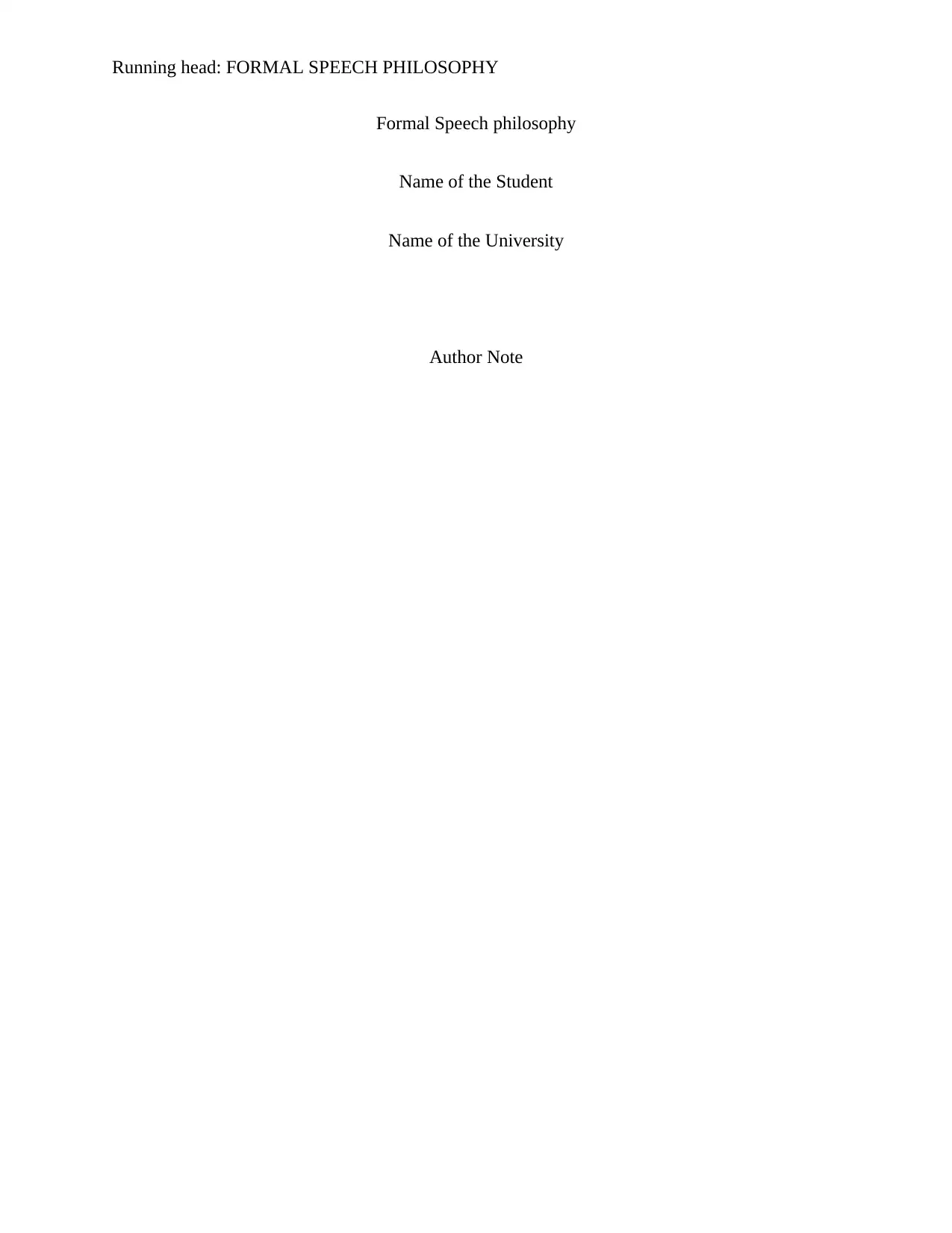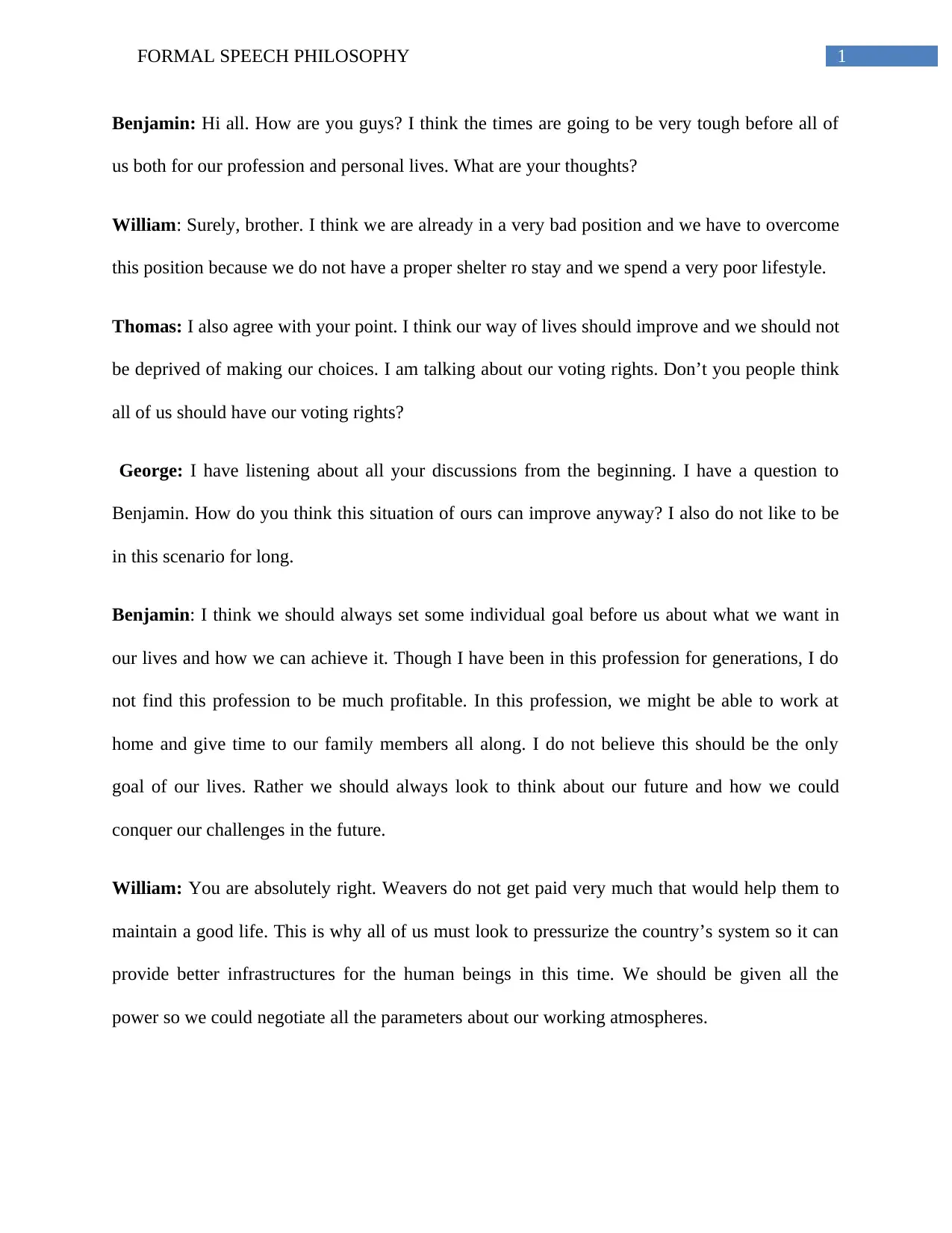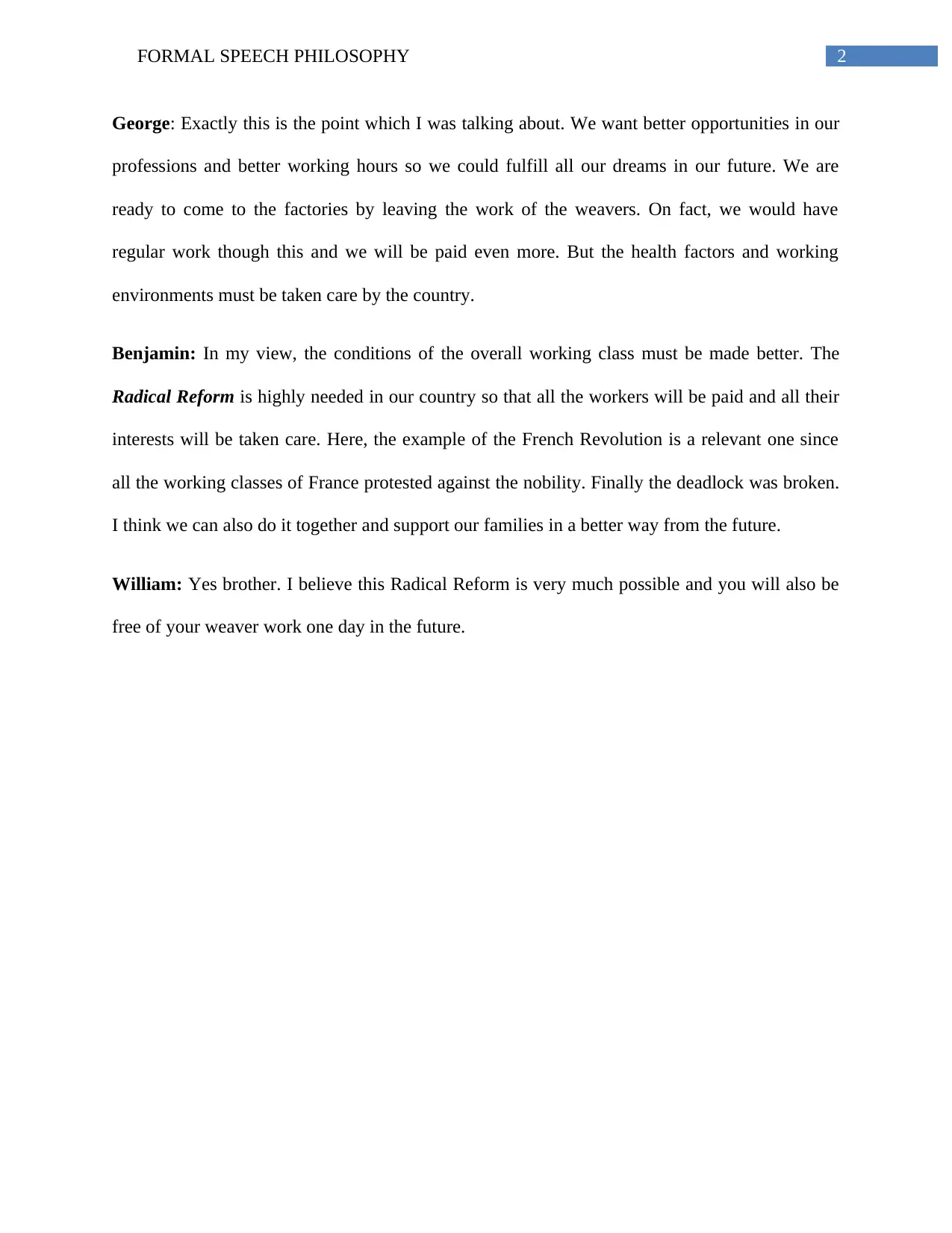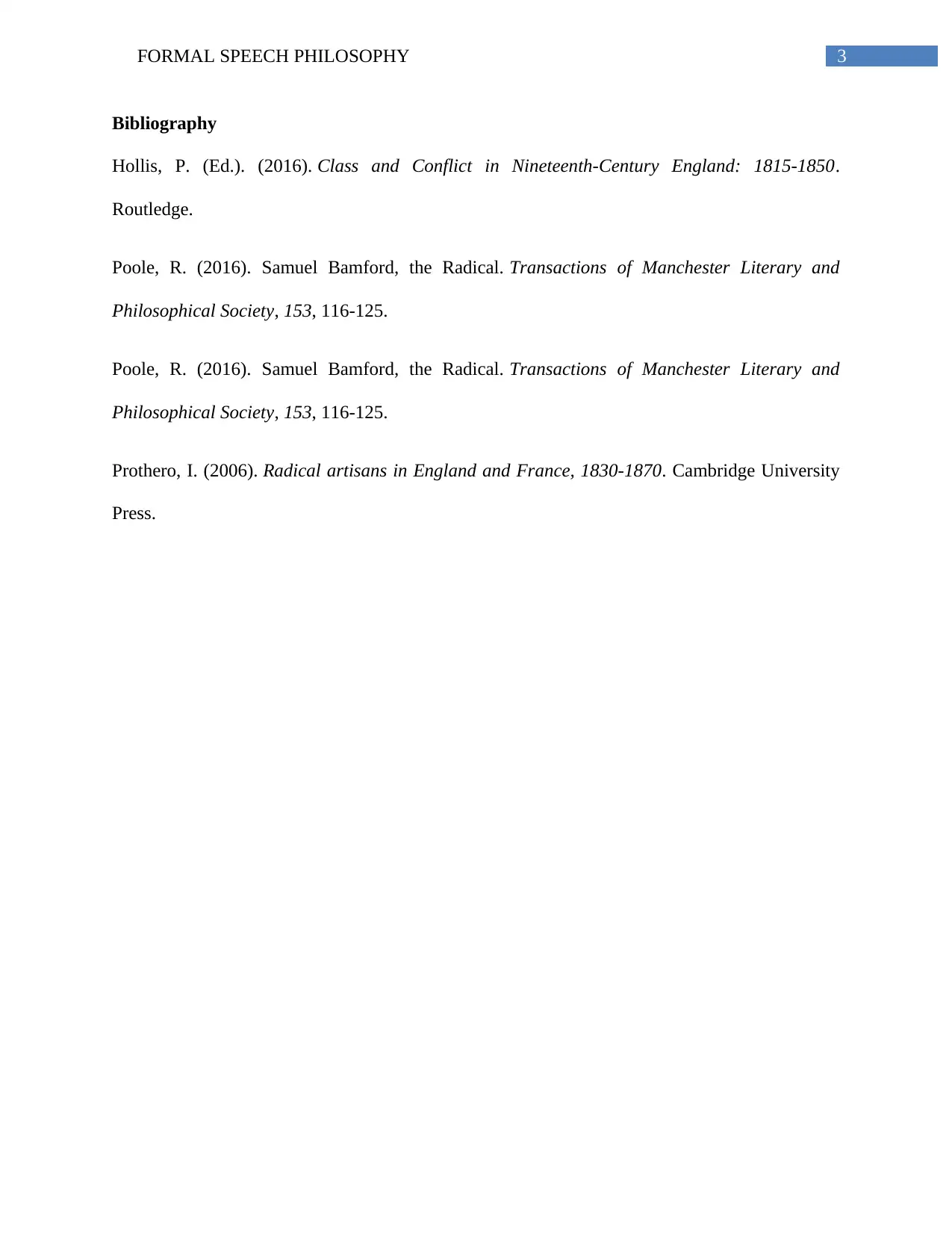University Philosophy Course: Formal Speech Analysis Report
VerifiedAdded on 2022/08/25
|4
|677
|23
Report
AI Summary
This report presents an analysis of a formal speech delivered by Benjamin Walker, a member of the laboring class and a weaver. The speech, a role-play scenario, discusses the hardships faced by weavers and the need for radical reform to improve their working conditions and overall quality of life. The speaker emphasizes the importance of individual goals, the need for better infrastructure, and the necessity of empowering the working class to negotiate better terms. The discussion highlights the historical context, drawing parallels with the French Revolution as an example of workers protesting against the ruling class. The report includes a bibliography of relevant historical texts and sources, providing a comprehensive understanding of the social and economic issues addressed in the speech and the historical background of the laboring class's struggles and aspirations.
1 out of 4










![[object Object]](/_next/static/media/star-bottom.7253800d.svg)